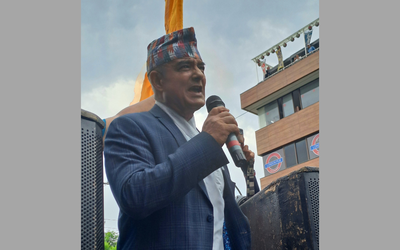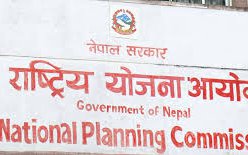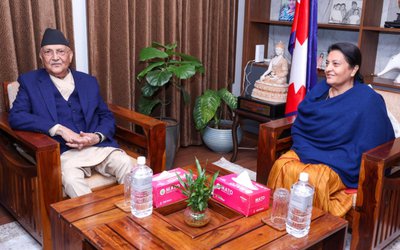More on News




The November 1 deal seems to have recharged the top leaders of key political parties and the key figures involved in the constitution making process.
"We will need another six months to have the constitution delivered. In another six months after that, the republic will be institutionalized," said Nilambar Acharya, expressing his joy over the deal. The constitution committee he heads swiftly endorsed the dispute resolution sub-committee’s recommendation to replace the proposed state restructuring commission with an experts panel.
Acharya no longer talks about the violation of constitutional provisions or ethical politics, and now easily endorses anything that the executive and the big parties do. He is now demanding that the House term should be extended by another six months beginning November 30 despite its repeatedly missed deadlines in the past and exhibits of non-accountability towards the people. In any case, the House and its members are a bunch of self-nominated 'legislators' and do not represent the citizens of this country any more. The so-called constituent assembly should realize that the people are not bound to accept the constitution it will deliver under the pact signed by the four leaders. Instead of encouraging habitual defaulters, Acharya would have contributed to the cause of democracy and ethics in politics if he had quit the House membership even at this stage.
Constitution making is not a uni-dimensional project, nor can it be achieved by ignoring the prevailing realities like absence of the state, unprecedented threat to the public safety, rampant corruption and lack of accountability in governance.
Let’s see what the latest deal is all about. It talks about the integration of not more than 6,500 Maoist combatants in the Nepal Army, and rehabilitation of others with a financial package. The other provisions, like return of property confiscated by the Maoists during the years of insurgency, formation of a truth and reconciliation commission and the commission on the disappeared, and demolition of the para-military structure of the Young Communist League, are simple the reiteration of promises, made for an umpteenth number of times, that the signatories and the government would never implement.
Baburam Bhattarai himself had gone under the command of Prachanda, then Prime Minister, to Dang in the company of Nepali Congress leader Baldev Majgaiya, and both had returned after the Maoists right away said they would not return the property. But this time around, Nepali Congress President Sushil Koirala will be held accountable, and termed politically dishonest if the return of the property by November 23 was blocked.
Sushil now feels that the Prime Minister's chair is knocking on his doors, and that telling a lie for that gain is worth it, And for him, depending more on the Maoists has become a necessity since he has not been able to carry his own party with him in entirety.
In fact, more questions will arise now about the integration than the deal will answer. Suppose, a substantial or overwhelming number of combatants out of proposed 6,500 decide to join the army, and take voluntary retirement that will get them anywhere up to 900,000 rupees, the Unified Communist Party of Nepal-Maoists (UCPN-M) will have the right to have the loyalty and affiliation of the combatants with a prefix ‘Ex’ preserved even after a whopping sum--not yet calculated properly—is spent from the state exchequer. There are rough estimates that this could cost the state up to 100 million U S dollars, and the state is naturally banking upon the generous donors who are going gaga over the fresh accord and prospects of the House term extension. Like the Nepali actors who have failed repeatedly to implement the peace
process and the constitution making, the external actors are as much involved in the failed process, sometimes too brazenly, but always without any accountability. Patting on the back of the failed actors each time they sign a deal has been a favourite pastime of the donors.
Why did Sushil Koirala and his party Nepali Congress earlier say this was going to be the last term for the House? He reiterated the same thing when he went to Delhi en route to Kathmandu while returning from the United States in July. Of course two significant things have happened in between. The Madhes parties have given up their 'one madhes one prades' rhetoric. In lieu of that Bijaya Gachchhadar, on behalf of the United Democratic Madhesi Front (UDMF), was asked to put in his signature in endorsement of the November 1 deal without having any role to debate on it. That simply shows the relation between the Maoists party and the UDMF is nothing but a power sharing understanding. They lack trust and respect for each other.
All that only means that the fresh deal is as faulty and deceitful as in the past. Political parties and their leaders stand thoroughly discredited. And when even those considered exceptions like Acharya join the discredited political mass, it is easy to see that the worse is yet to come.







